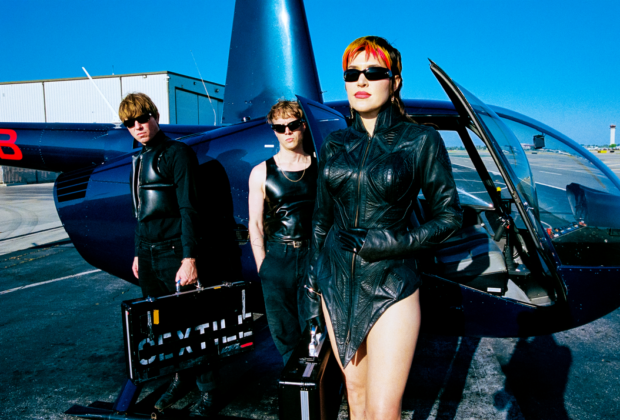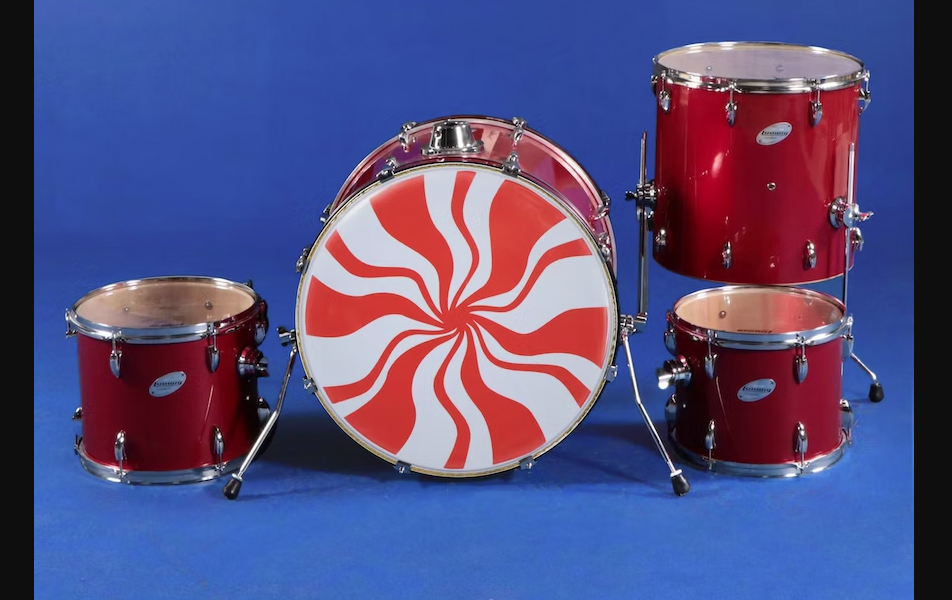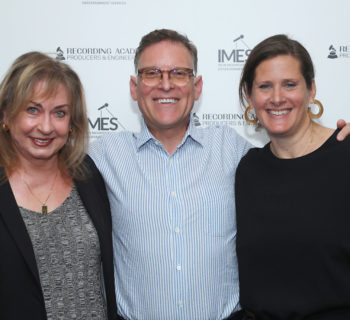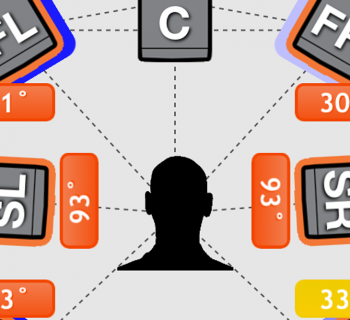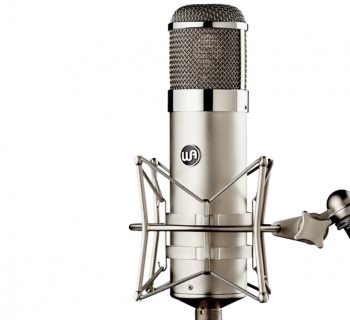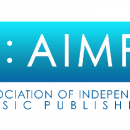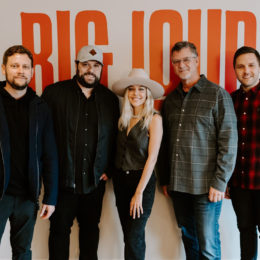| Since emerging in 2015, Sextile have been a party-provoking force on the LA underground, capable of kicking up a riot with the raw-edged squall of a synth or the sharp-elbowed jerk of a guitar. Originally formed by Brady Keehn and Melissa Scaduto after the pair relocated from New York to LA, Sextile released their debut album A Thousand Hands in 2015, with its Grand Canyon-sized echoes, haunted screams, and post-punk invocations, before pushing synths further down the front with 2017 effort Albeit Living. |
| Sextile’s taste for electronics matured on the throbbing EBM-meets-industrial pick-me-up of 2018’s 3 EP, cut from an analogue stash that included their trusted Korg MS-10 and LinnDrum, but the band put things on ice shortly after its release. Sextile guitarist, synth player, and original member Eddie Wuebben, who joined Sextile in 2015, tragically passed away in October 2019. Cameron Michel later re-joined on guitar and synths. Separately, they each turned their focus to other projects, with Scaduto on S. Product, Keehn on Panther Modern, and Michel as a visual artist. In 2022, the group reconnected and dropped their first new material in three years viathe split single “Modern Weekend / Contortion” and “Crassy Mel”. |
| Now they return refreshed, renewed, and ready to rage with a serotonin-boosting new album, a new group dynamic, faster BPMs, and an even wilder new direction. Recorded in Yucca Valley, Push bounces and bops at the fringes of hardcore dance music, with the hallmarks of drum & bass, gabber and trance illuminating the record like glowsticks at a ‘90s Fantazia rave. Both Scaduto and Keehn have been busying themselves with more dancing and DJ gigs, and this fun flurry of activity has in turn fuelled the band’s sonic refit. “We talked about how one of the criteria for these songs is ‘Would I be able to actually dance to it?’ I don’t think we’ve ever set that criteria before. We wanted to have a record that is just full of dance songs.” |
| “Contortion” introduces the album with shadowy vocals from Keehn and a ‘00s-ready twist of dirty electro bass, setting the tone for the dance-punk rave-up that unfolds across 11 attention-grabbing tracks. Push was inspired by the kind of pleasure-seeking music fans whose social calendar comprises both the punk show and the rave. Josh Wink, Screamadelica, Iggy Pop, Goldie, and early XL Recordings, have all been name-checked as influences on Push, and the dance-floor remains a constant presence. Repping their place of origin, "New York" brings these musical touchstones off the page, guiding the album like an acid-soaked lodestar with its grinning nod to "Higher State of Consciousness" and awhirlygig of music-box synths. |
| More abstractly, perhaps, is how the influence of everyday sound seeps into the music. The electrical hum of traffic lights and that electrical box you pass by on the sidewalk become tones that either drive a rhythm or emotion while searing beeps recall the forklift at Michel’s warehouse. “Modern Weekend”—which also gives a shout-out to Iggy Pop (“the original bad boy”)—samples Michel’s particularly busy street, where the whoosh of cars tearing down the highway sounds like the ocean. “You can hear the buses, the sound of LA; we wanted to give you this taste of LA in a soundscape,” says Keehn. |
| Aside from the clattering metalscapes, there’s plenty of historic teen angst and biting social commentary written into the album’s vivid tapestry of misadventures. Balancing storytelling with face-melting synths that turn the tune into an acid trance character study,“No Fun”is penned from the perspective of a teenager trying to flee their town. “I’m talking about stealing your mum’s car in it, which I did at that age,” says Scaduto. |
| A punk spirit underscores the album. The clue’s in the name with “Crassy Mel,”which partly serves as a high-energy dedication to ‘70s anarcho-punk legends Crass and partly draws inspiration from a “difficult” person known to the band. “What is your problem now?” asks Scaduto. Originally envisioned on guitar before morphing into a genre-mashing electronic knockout, the track’s headbanging heft, vocal yelping, and Prodigy-shaped breakbeats accentuate the album’s overwhelming sense of fun. Plus, the dreamy ambient wash at the end of the song is the ultimate palate-cleanser. |
| “Lost Myself Again”is a whirlwind of drum & bass while“Crash,”which features the vocals of the band’s friend Izzy Glaudini and revolves around the MS-20,similarly locates itself in the ‘90s, bearing a line that could quite possibly sum up the whole album: “Dance away yourself”. Keehn says his lyrics are “mostly about feeling like I’m losing it or just trying to deal with life and the anxieties that come with it.” “Crash” fully invites you to shake it all off. |
| Meanwhile, the pounding kicks of “LA DJ” form the backbone for a citrus-sharp satire on, well, LA DJs. Scaduto poured her experiences of rampant misogyny into the album’s bass-fortified closing track“Imposter,” aimed at an unnamed offender and sung through gritted teeth. For the first time on a Sextile record, Scaduto’s voice assumes a co-starring role with Keehn’s. |
| There are still nods and “hellos” to the caustic post-punk of Sextile’s earlier work.“Plastic,”for example, shares DNA with A Thousand Hands and Albeit Living, but the track is crammed full of breaks; new territory for the band. Sextile haven’t quite relinquished their punk credentials, they’ve just given them a smiley-faced revamp. |
| “The cool thing with electronic music is that most of the time people don’t know what they’re hearing but if it’s an inherently good song, they’ll dance anyway. That’s a really fun and ambitious thing to figure out – how to move the room no matter what,” concludes Scaduto. |
